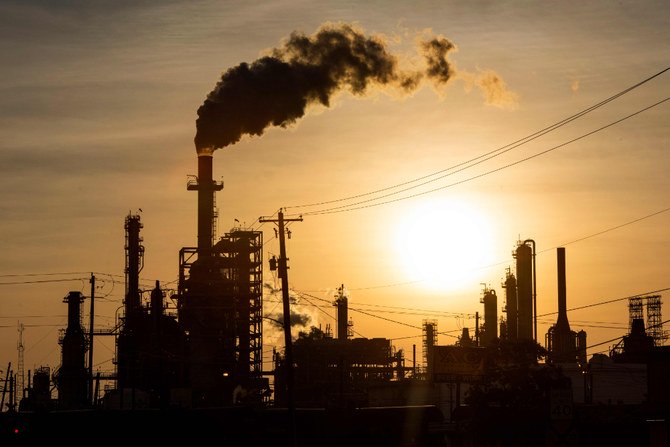
- ARAB NEWS
- 11 Jul 2025

Back in January 2016, with oil scraping along at $30 a barrel, The Wall Street Journal ran an article headlined “Where have all the oil speculators gone?,” arguing that prices would recover faster if markets were allowed to get on with the job of pricing the commodity without all that interference by governments, regulators and oil corporations.
It was a classic bit of free-market tub-thumping by the newspaper, but made the point that any investable instrument needs the liquidity provided by market professionals who help keep the financial gears moving. This is as true of stocks and shares and corporate bonds as it is of oil or any physical commodity.
In the Middle East’s oil-producing countries, speculators were the bogeymen in the global oil business. Sitting in an office in downtown Manhattan, they were slicing off a chunk of the value from the “black gold” that national oil companies, their governments and citizens relied on for economic well-being.
They were also convenient scapegoats for any fall in oil prices. If the value of crude went down it was the fault of the speculators. If it went up it was because of “fundamental demand.”
The events of the past week in global oil markets demonstrate that the speculators never really went away. In fact, they were back in full-time action dealing big-time in futures contracts on West Texas Intermediate (WTI) and Brent crude. Many of them got their fingers severely burned.
Not that they call themselves speculators anymore. They are now “professional participants in our marketplace” — in the words of Terry Duffy, the chief executive of the Chicago Mercantile Exchange (CME) Group that provides the platform for their business.
Many used exchange traded funds (ETFs) — investible bundles of assets traded on stock markets and often linked to an index or commodity — which are becoming the driving force of all financial markets.
The biggest of these involved in the carnage that overtook WTI last week was the United States Oil Fund (USO) which had a position of as much as 36 percent of all the WTI contracts that caused the trouble last week.
Investors/speculators in USO and other ETFs were looking to make some money on what they regarded as cheap oil, perhaps encouraged by US President Donald Trump’s belated involvement in the oil business and the biggest deal in oil history — the OPEC+ agreement led by Saudi Arabia and Russia that cut output by an unprecedented 9.7 million barrels per day.
The events of the past week in global oil markets demonstrate that the speculators never really went away.
Frank Kane
Whatever the reasons for their interest in oil, they were severely misguided. The cuts were nowhere near enough to make any difference to the global glut of oil, because of the lockdowns of the coronavirus disease (COVID-19) pandemic. The oil price was not ready to move upwards.
The speculators were hoist by their own petard and were left holding theoretical interests in oil that suddenly became a physical interest. They did not want to own physical barrels of crude, and — with so much already on the market — nor did anybody else. It was even impossible to put it into storage because all the storage tanks are virtually full to the brim.
Poetic justice done, or so you might think. Some people looking to make a quick buck got caught on the wrong side of a trade, and took a hammering.
But the whole sorry debacle has raised some very important questions about how oil is traded.
The decision by the CME to allow WTI to trade in “negative” territory is mystifying. Equity holders might understand that if the share price falls to zero you lose your money, but how do you explain the concept that you might be on the hook for money you have not invested?
There is a broader consideration here, too. The world, and especially the oil industry, is in the middle of the biggest crisis it has faced for many years, as global economies are ravaged by the outbreak of the coronavirus disease.
Vital decisions are being made amid this crisis that will affect the future of the global economy, and the vital oil business, for many years to come.
Twitter: @frankkanedubai